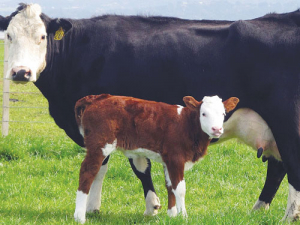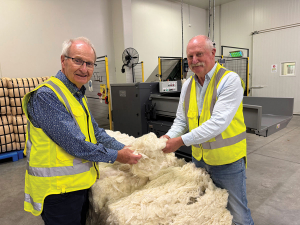This weight loss follows extensive mobilisation of the cows’ body reserves to supply vital nutrients (energy, protein and minerals) to support milk production.
Unfortunately, as cows have been continually selected for higher production, they have simultaneously increased their risk of becoming ‘overcommitted’ in terms of meeting the demands of lactation.
The comparison can be made; a modern dairy cow which is bred to perform is not too dissimilar to a high performance sports car. Both are capable of extraordinary performances in their own right, but just as capable of breaking down if not managed appropriately or supplied with the correct fuel!
Examples of this ‘break down’ in cattle are the two ‘metabolic diseases’ Subclinical Ketosis (SCK) and Clinical Ketosis (CK). These both arise when the cow has not successfully adapted to the negative energy balance of early lactation.
CK is relatively easy to recognise (smelly breath (sweet – acetone), rapid weight loss, anorexia, milk drop, neurological signs (aggression, licking bars, stupor).
On the other hand, as the name suggests SCK does not have any obvious signs and therefore ‘quietly’ goes unnoticed ultimately costing farmers significantly.
SCK while invisible has been linked with the following:
- Increased chance of suffering a displaced abomasum (4thchamber of the forestomach).
- Increased chance of developing metritis (uterine infection) if SCK occurred in week 1 of lactation.
- Increased chance of developing CK (clinical signs described above).
- Increased chance of having subclinical metritis 28 days after calving.
- Increased duration and severity of mastitis.
- 180% increased chance of being culled within the first two months of lactation.
- Increased chance of failing to cycle after two months of lactation.
- Reduced chance of becoming pregnant at first AI.
All of these factors combined together very quickly translate into significant economic losses and have been estimated to amount to approximately $400 per individual case!
The good news is, there are relatively inexpensive ‘cow-side’ testing methods that can identify if SCK is an issue. Testing should be done within 14 days of calving on a minimum of 10 cows.
From the results obtained management decisions around amount of feed offered, types of feed offered and milking frequency, can be made. Most herds respond extremely well to remedial changes in management following identification of this relatively common early season metabolic disease.
Please note, while the impact of this relatively common but ‘invisible’ disease seems daunting, the actual detection and treatment of this disease (largely management based) is not overly ‘resource hungry’. So, it makes very good sense to go looking if you believe there could be an issue.
If you suspect you are suffering the ill-effects of SCK (as listed in the bullet points above) contact your farm advisor, nutritionist or veterinarian to discuss further.
• Greg Jarratt is a vet and director of Matamata Veterinary Service.
This article is brought to you by J. Swap Stockfoods.
















